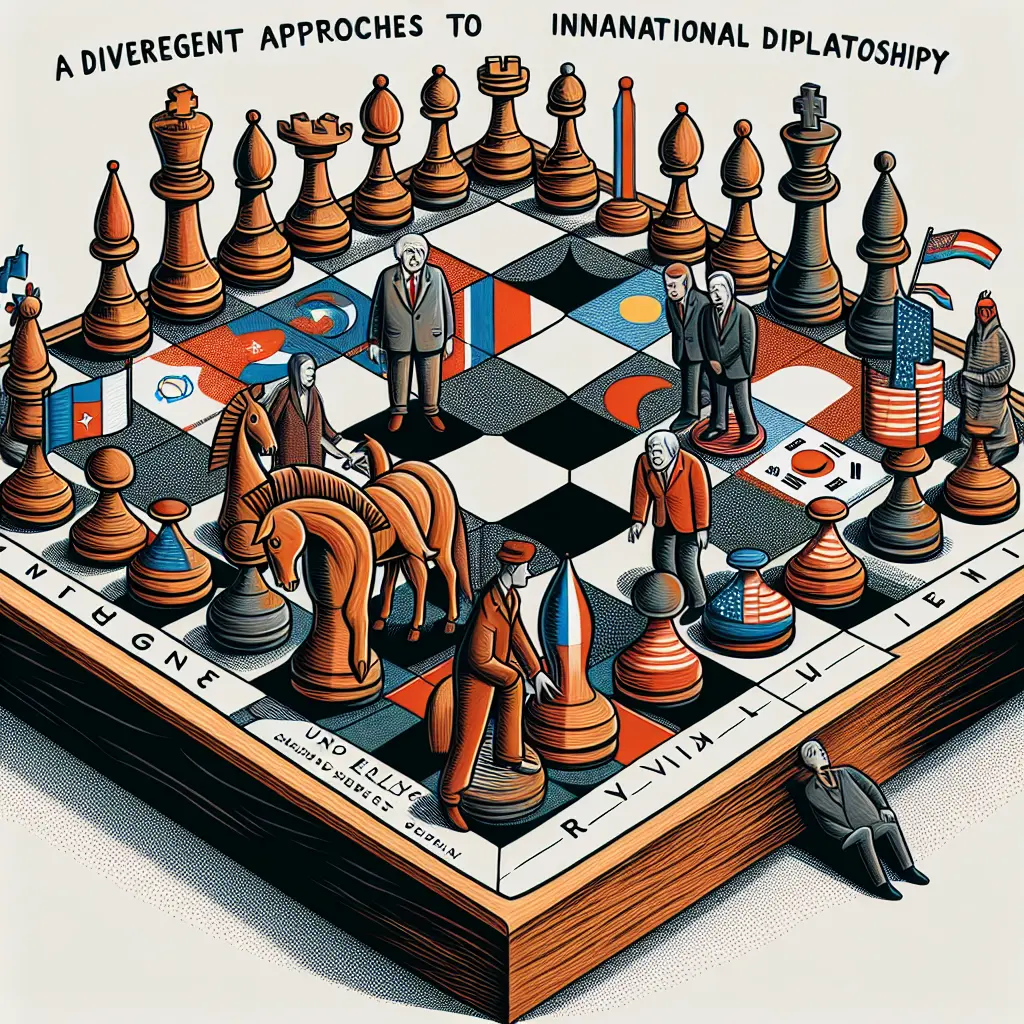
The tenure of former U.S. President Donald Trump marked a distinctive era in the realm of international relations and diplomacy. Known for his unorthodox approach, Trump's foreign policy maneuvers and engagements with global leaders often sparked intense debate and scrutiny. From the America First policy to his unique diplomacy style, Trump’s presidency reshaped the U.S.'s position on the world stage.
Trump Foreign Policy and Global Strategy
Trump’s foreign policy, often encapsulated by the "America First" ideology, prioritized American interests and economic benefits, sometimes at the expense of traditional alliances and international agreements. This policy reflected a form of nationalism that sought to reassess and often redefine the U.S.'s relations with the world. Trump’s global strategy was evident in his aggressive trade policies, re-negotiation of trade agreements, and his approach to defense spending by NATO allies, which he frequently criticized for not contributing enough.
Trump Trade Agreements and Tariffs
One of the cornerstones of Trump's global strategy was restructuring trade agreements. He renegotiated NAFTA, resulting in the United States-Mexico-Canada Agreement (USMCA), aiming to bring more jobs and better terms for American workers and businesses. Furthermore, Trump's administration is known for its significant use of tariffs, especially against China, in what became widely referred to as a trade war. These tariffs were intended to encourage the return of manufacturing jobs to America and reduce the trade deficit. However, they also led to retaliatory tariffs from other countries, affecting global trade dynamics.
Trump NATO Relations and UN Approach
Trump's approach to NATO was marked by a demand for increased defense spending by member countries, arguing that the U.S. was shouldering an unfair burden. His often confrontational tone questioned the very foundation of mutual defense pacts that have been in place since World War II. In terms of the United Nations, Trump's administration showed a clear preference for bilateral over multilateral negotiations, evident from his withdrawal from several UN-backed agreements and funding cuts to UN programs.
Trump and Key Global Players: North Korea, China, Russia, and the Middle East
Trump’s international relations were never short of headlines, especially his unprecedented meetings with North Korean leader Kim Jong-un aimed at denuclearization—a move that broke with decades of U.S. diplomatic practice. However, despite the historic summits, substantial progress remained elusive.
With China, Trump’s policies were heavily influenced by trade issues, leading to a strained relationship punctuated by tariffs and strong rhetoric. His administration also labeled China a currency manipulator, adding tension to global economic dynamics.
In contrast, Trump’s relationship with Russia was often seen as unusually warm, with critics concerned about undue friendliness with Russian President Vladimir Putin. These relations drew intense scrutiny and investigation, particularly related to allegations of Russian interference in the 2016 U.S. elections.
In the Middle East, Trump's policies included controversial decisions like moving the U.S. Embassy in Israel from Tel Aviv to Jerusalem and recognizing Israeli sovereignty over the Golan Heights, moves that received praise from some quarters while provoking outrage in others.
Trump Diplomacy Style: Influence on Immigration, Climate Change, and More
Trump’s diplomacy style was direct and often combative, which was evident not just in international negotiations but also in his handling of immigration and climate change policies. His administration implemented stringent immigration restrictions, including a travel ban on several predominantly Muslim countries and a strict border policy against undocumented migrants from Latin America.
On climate change, Trump's stance was marked by skepticism. His decision to withdraw from the Paris Climate Agreement was a significant global setback for collective environmental efforts.
Recent News Reflecting Trump’s Enduring Influence
Even after his presidency, Trump’s influence remains palpable as seen in recent news events. His endorsement by figures like Elon Musk after a rally shooting incident shows his continued relevance in political and tech spheres. Musk's endorsement could be seen as aligning Silicon Valley’s interests with Trump’s political clout, despite potential risks to Tesla’s future due to political polarization.
Moreover, Trump's choice of J.D. Vance as his vice presidential pick signals strategic alignment with Silicon Valley heavyweights and reflects ongoing support within certain tech circles—highlighted by Musk's rally behind Vance.
Conclusion: The Legacy of Trump's International Relations and Diplomacy
Trump's presidency undeniably left a lasting impact on global diplomacy and international relations. His America First policy redefined traditional alliances, reshaped trade agreements, and altered the U.S.’s approach to global governance structures like NATO and the UN.
While opinions on the effectiveness and consequences of his policies remain deeply divided, the shift towards a more transactional style of diplomacy under Trump has sparked discussions on the future of international relations that will likely continue well into the future.
In an ever-evolving geopolitical landscape, understanding these dynamics remains crucial for anticipating future trends in global diplomacy.
—Alexander Reid